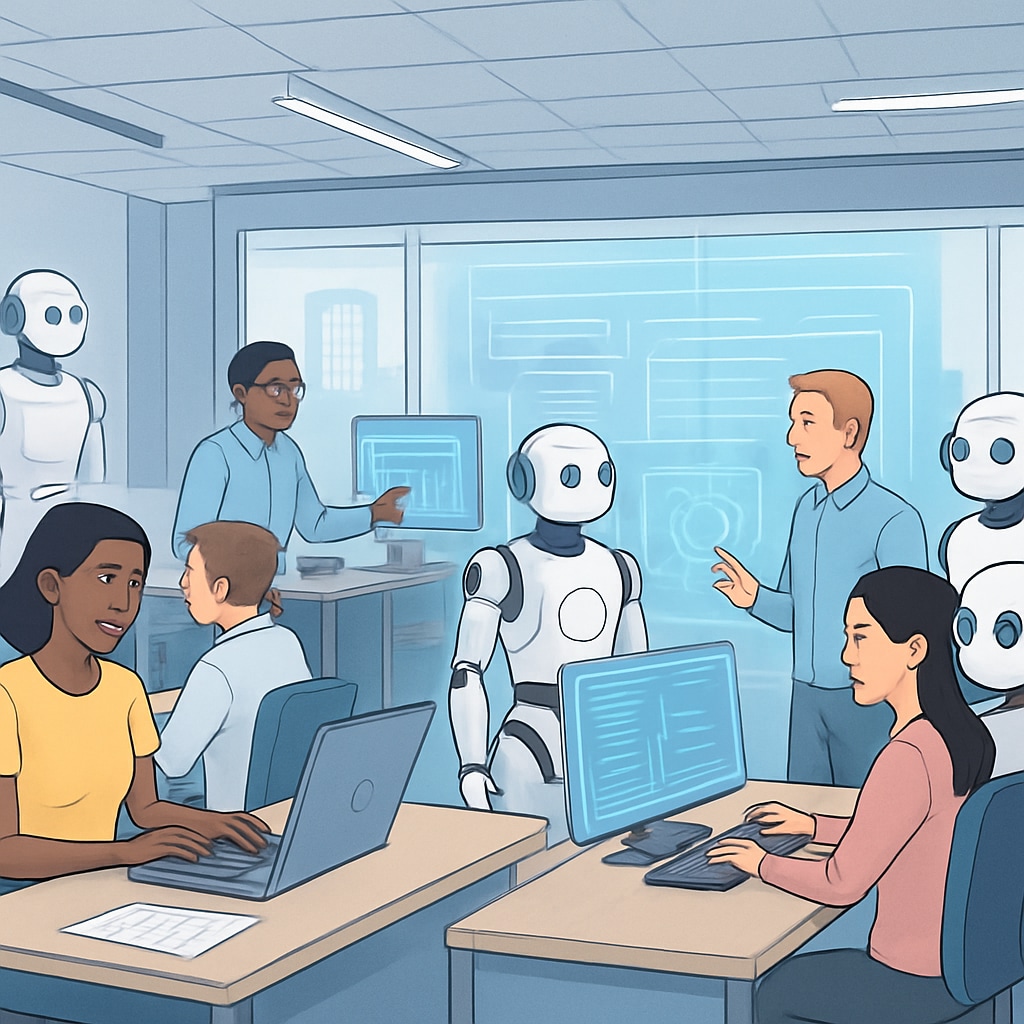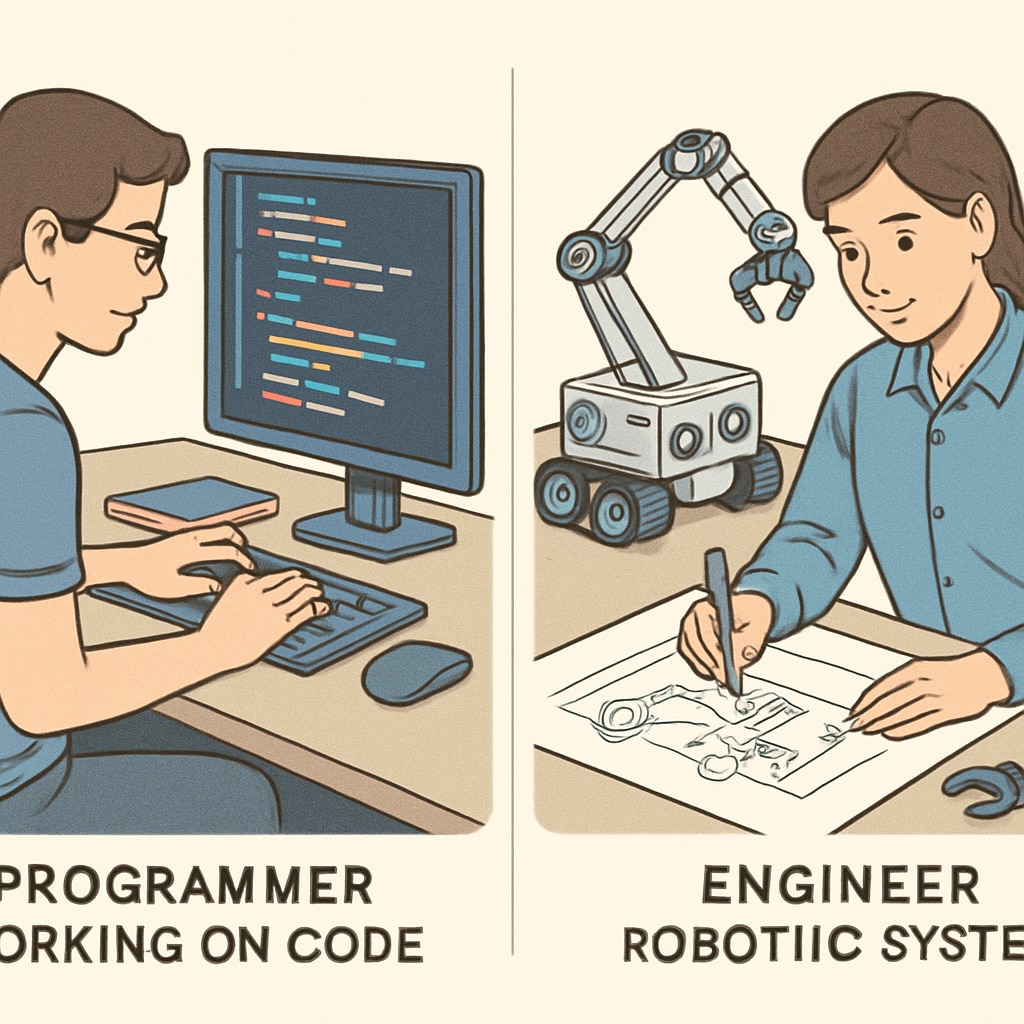In today’s rapidly evolving technological landscape, career choices have become more challenging than ever for teens. The rise of artificial intelligence (AI) has not only redefined countless industries but also introduced uncertainty in traditional roles like programmers and engineers. For K12 students, the question is no longer just “What do I want to be when I grow up?” but also “Will AI make this career obsolete?” Understanding how to navigate these changes is essential for planning a successful and fulfilling future.
Understanding the Impact of AI on Career Choices
Artificial intelligence is reshaping the job market in profound ways. From automating repetitive tasks to enabling entirely new fields, AI is both a disruptor and a creator of opportunities. According to a Britannica article on artificial intelligence, industries like healthcare, finance, and education are embracing AI-driven tools. However, this also means that some traditional roles are at risk of being replaced or heavily modified.
For example, programming, once considered a staple skill for the digital age, is evolving due to tools like AI-assisted coding platforms. Similarly, engineers are finding their roles shifting toward integrating AI systems into traditional environments. Understanding these trends can help teens make informed decisions about their career paths.

Programmer vs. Engineer: Which Career Path Fits the AI Era?
For teens interested in technology, two popular career choices are programming and engineering. While the two roles share similarities, they differ in focus and adaptability to AI advancements. Here’s a closer look:
- Programmers: While AI tools are automating parts of the coding process, programmers who specialize in areas like machine learning, data science, or cybersecurity remain in high demand. Learning languages like Python or C++ and gaining expertise in AI-related frameworks can ensure job relevance.
- Engineers: Engineers, particularly in fields like robotics, mechatronics, and AI system design, play a vital role in developing technologies that incorporate machine learning algorithms. This makes engineering a versatile career path that adapts well to the AI revolution.
In addition to technical skills, soft skills like critical thinking, creativity, and adaptability are increasingly important. These skills cannot be easily automated, ensuring their enduring value in any career.

How Teens Can Prepare for Future Careers in the AI Era
Preparing for a future shaped by AI requires a proactive approach. Here are some practical steps teens can consider:
- Explore STEM Education: Subjects like math, science, and technology provide a strong foundation for AI-related careers. Participating in STEM clubs, hackathons, or online coding courses can spark interest and build skills.
- Stay Informed About Industry Trends: Following developments in AI through reliable sources like Wikipedia’s AI page can help teens understand which careers are emerging or evolving.
- Develop Problem-Solving Skills: Whether through games, puzzles, or real-world challenges, honing analytical thinking prepares teens for complex tasks in any profession.
- Seek Mentorship: Connecting with professionals in programming or engineering can provide insights into the realities of these careers and how they are changing.
In addition, teens should consider exploring interdisciplinary fields like bioinformatics, environmental engineering, or digital humanities, where AI is being applied in innovative ways.
Final Thoughts: Embrace Change and Stay Adaptable
The AI revolution is not something to fear—it’s an opportunity to rethink how we approach work and innovation. For teens, the key to thriving in this environment lies in adaptability, lifelong learning, and a willingness to explore emerging fields. Whether choosing to become a programmer, an engineer, or something entirely new, the future is bright for those who can combine technical expertise with creativity and critical thinking.
As the digital age continues to evolve, teens who embrace change and proactively develop their skills will be well-positioned to succeed in the careers of tomorrow.
Readability guidance: This article uses short paragraphs, lists to summarize key points, and clear transitions. The content avoids jargon while ensuring accessibility for readers at a CEFR B1–B2 level.


